
The Cultural Heartbeat of India: Lucknow
Lucknow, the capital of Uttar Pradesh, is a city rich in history and culture. Known for its traditional architecture, delectable cuisine, and vibrant arts scene, Lucknow is a must-visit destination for anyone interested in experiencing the essence of India. The city is famous for its Imambaras, with the Bara Imambara being an architectural marvel. The labyrinthine Bhool Bhulaiyaa and the grand Rumi Darwaza are just a few of the historical treasures that await you here. The city is also renowned for its culinary delights. From the fragrant biryanis to the succulent kebabs, Lucknow’s Awadhi cuisine will tantalize your taste buds. Don’t miss a visit to the bustling Chowk area, where you can sample traditional sweets like Malai Ki Gilori and Makhan Malai. In addition to its historical and culinary attractions, Lucknow is a hub for arts and crafts. The city is famous for its Chikan embroidery, a traditional form of hand-stitched embroidery that adorns everything from sarees to home decor items. The vibrant markets of Hazratganj and Aminabad offer a delightful shopping experience, where you can find everything from antiques to modern fashion. The people of Lucknow are known for their warm hospitality and the city’s unique culture of ‘Tehzeeb’ (etiquette) is evident in every interaction. Whether you are exploring its historical sites, savoring its delicious food, or shopping for local crafts, Lucknow offers an enriching and unforgettable experience.
Local tips in Lucknow
- Visit the Bara Imambara early in the morning to avoid crowds and enjoy the serene atmosphere.
- Try the street food in the Chowk area but make sure to go with a local guide for the best experience.
- Wear comfortable shoes as you will be doing a lot of walking, especially in the historical areas.
- Don’t miss a traditional Lucknowi kebab meal at one of the famous local eateries like Tunday Kababi.
- Shop for Chikan embroidery in Aminabad for authentic and reasonably priced items.
Neighbourhoods in Lucknow
The Cultural Heartbeat of India: Lucknow
Lucknow, the capital of Uttar Pradesh, is a city rich in history and culture. Known for its traditional architecture, delectable cuisine, and vibrant arts scene, Lucknow is a must-visit destination for anyone interested in experiencing the essence of India. The city is famous for its Imambaras, with the Bara Imambara being an architectural marvel. The labyrinthine Bhool Bhulaiyaa and the grand Rumi Darwaza are just a few of the historical treasures that await you here. The city is also renowned for its culinary delights. From the fragrant biryanis to the succulent kebabs, Lucknow’s Awadhi cuisine will tantalize your taste buds. Don’t miss a visit to the bustling Chowk area, where you can sample traditional sweets like Malai Ki Gilori and Makhan Malai. In addition to its historical and culinary attractions, Lucknow is a hub for arts and crafts. The city is famous for its Chikan embroidery, a traditional form of hand-stitched embroidery that adorns everything from sarees to home decor items. The vibrant markets of Hazratganj and Aminabad offer a delightful shopping experience, where you can find everything from antiques to modern fashion. The people of Lucknow are known for their warm hospitality and the city’s unique culture of ‘Tehzeeb’ (etiquette) is evident in every interaction. Whether you are exploring its historical sites, savoring its delicious food, or shopping for local crafts, Lucknow offers an enriching and unforgettable experience.
When is the best time to go to Lucknow?
Iconic landmarks you can’t miss
Bada Imambara, West Lucknow
Explore the architectural wonder of Bada Imambara in Lucknow, a historical landmark showcasing Mughal elegance and rich cultural heritage.
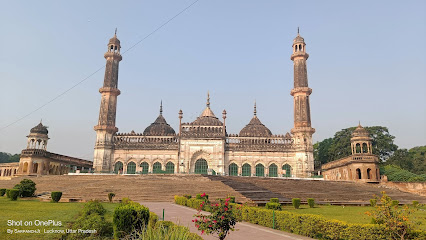
Gomti Riverfront Park
Discover the tranquil beauty of Gomti Riverfront Park in Lucknow, a perfect blend of nature and recreation along the scenic Gomti River.
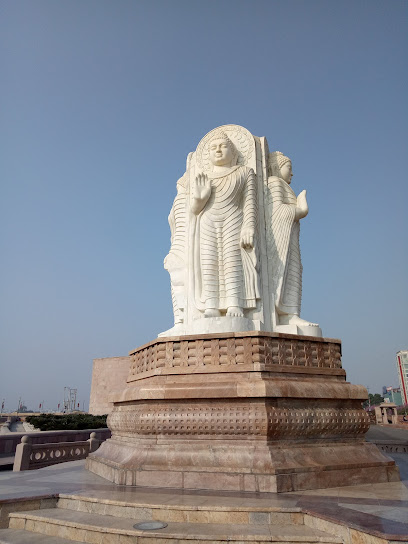
Dr. Babasaheb Ambedkar Memorial Park
Discover the serene beauty and historical significance of Dr. Babasaheb Ambedkar Memorial Park in Lucknow, a must-visit memorial park for all travelers.
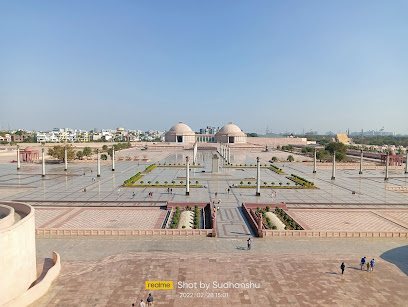
Rumi Darwaza
Discover the historical marvel of Rumi Darwaza in Lucknow, an architectural gem that reflects the city's rich cultural heritage and stunning craftsmanship.
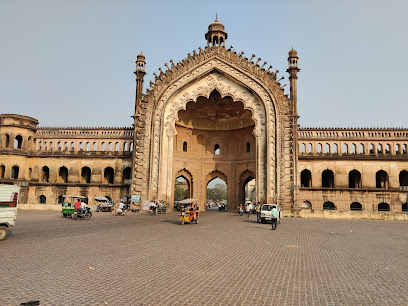
The Residency, Lucknow
Discover the rich history of The Residency in Lucknow, a must-visit archaeological site and heritage museum capturing the essence of India's past.
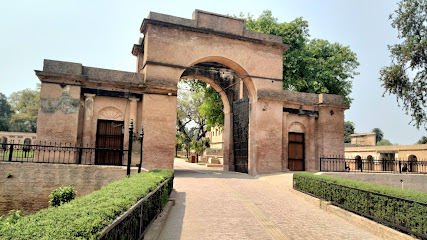
Chota Imambara
Discover the architectural splendor and historical significance of Chota Imambara, a must-visit destination in Lucknow, Uttar Pradesh.
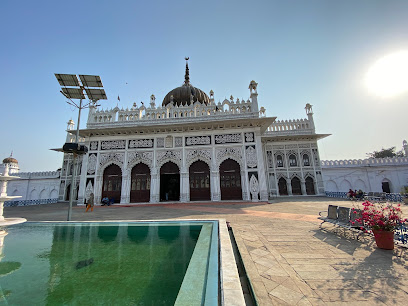
Pizza Cave
Savor the delicious pizzas at Pizza Cave in Lucknow, where culinary creativity meets a vibrant atmosphere, making it a must-visit for food lovers.
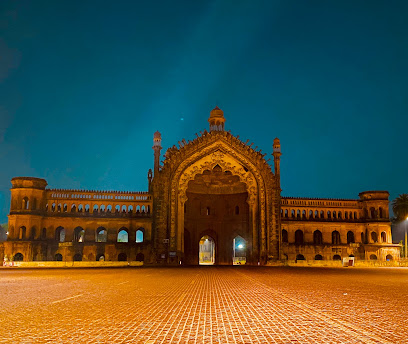
State Museum Lucknow
Explore a rich tapestry of history and culture at the State Museum Lucknow, showcasing artifacts that narrate the story of India’s past.
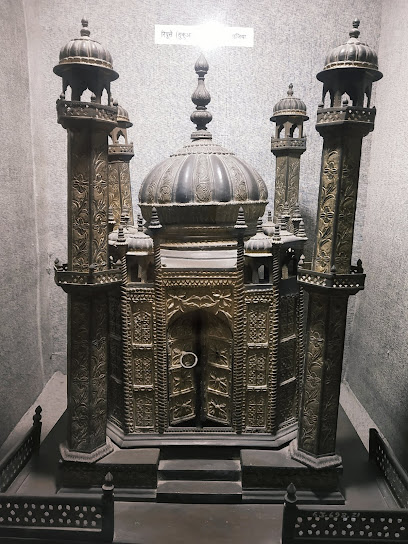
Sikandar Bagh
Explore Sikandar Bagh, a historical garden in Lucknow, where nature meets heritage amidst tranquil landscapes and Mughal architecture.
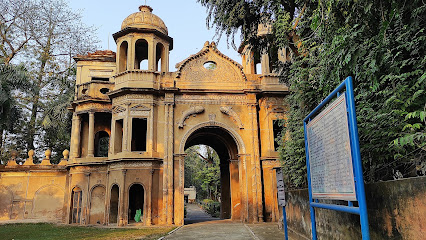
Safed Baradari
Explore Safed Baradari, a stunning mosque and historical landmark in Lucknow, where rich heritage meets exquisite Mughal architecture.
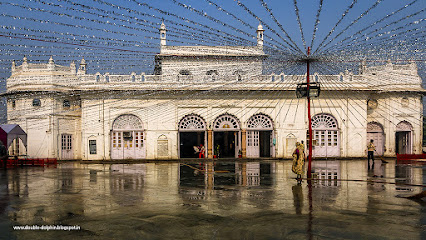
Picture Gallery
Explore the Hussainabad Picture Gallery, a cultural gem in Lucknow showcasing exquisite portraits of the Nawabs and rich artistic heritage.
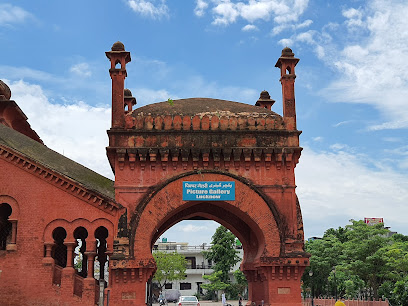
Bhul Bhulaiya of Awadh
Discover the Bhul Bhulaiya of Awadh, a mesmerizing historical landmark in Lucknow, showcasing intricate architecture and rich cultural heritage.
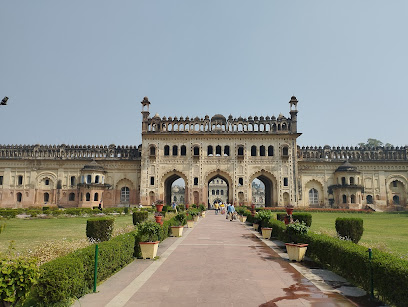
Satkhanda
Explore Satkhanda in Lucknow, a historical landmark showcasing stunning architecture and rich cultural heritage, perfect for your travel adventures.

Chhatar Manzil
Experience the grandeur of Lucknow's heritage at Chhatar Manzil, a historical landmark reflecting the city's royal past.
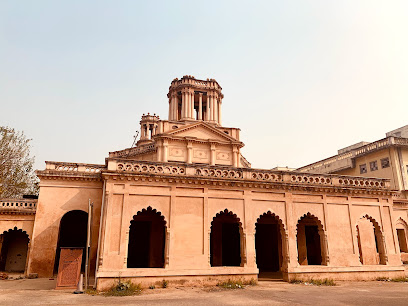
Shaheed Smarak
Explore Shaheed Smarak, a beautiful monument in Lucknow honoring India's freedom fighters amidst serene gardens and rich cultural heritage.
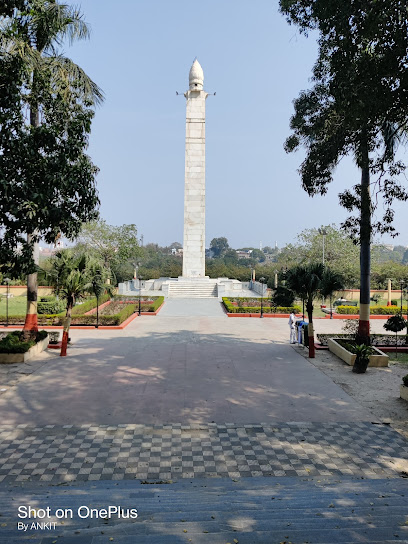
Unmissable attractions to see
Janeshwar Mishra Park
Explore the serene beauty of Janeshwar Mishra Park, a perfect retreat in Lucknow for nature lovers and families alike.
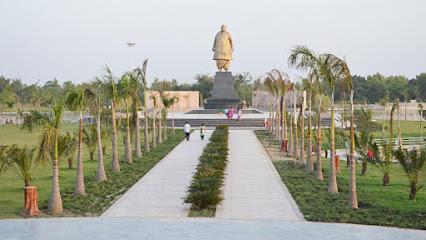
Bara Imambara
Explore the architectural wonder of Bara Imambara in Lucknow, a historical and religious landmark showcasing exquisite design and rich cultural heritage.
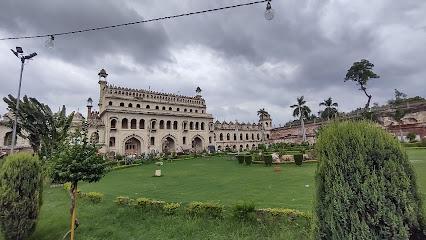
Nawab Wajid Ali Shah Zoological Garden
Discover the diversity of wildlife at Nawab Wajid Ali Shah Zoological Garden, a must-visit attraction in Lucknow for families and animal lovers.
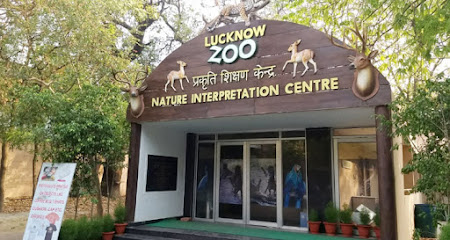
Gomti Riverfront Park
Explore the serene beauty of Gomti Riverfront Park in Lucknow, a perfect blend of nature, recreation, and culture along the scenic riverbank.
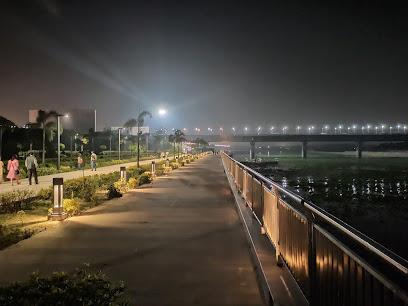
Rumi Darwaza
Discover the architectural marvel of Rumi Darwaza, a historical landmark in Lucknow showcasing the beauty of Awadhi culture and Mughal heritage.
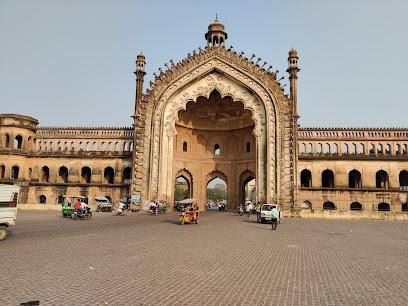
The Residency, Lucknow
Explore The Residency in Lucknow, a historic site showcasing the rich heritage and architectural beauty of the British colonial era.
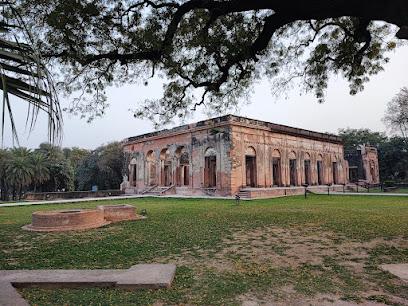
Chota Imambada
Discover the architectural wonder of Chota Imambada in Lucknow, an exquisite monument blending history and spirituality amidst serene gardens.
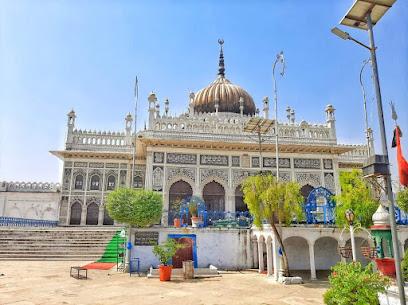
Gautam Buddha Park
Discover tranquility and beauty at Gautam Buddha Park, a serene oasis in Lucknow featuring lush gardens and historical significance.
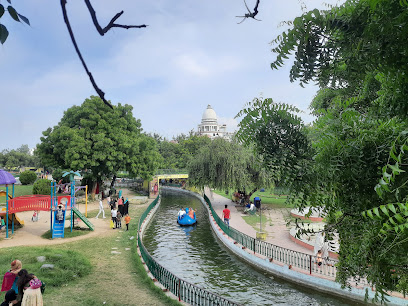
Pizza Cave
Discover the best pizza in Lucknow at Pizza Cave, where flavor meets tradition in a vibrant setting near Ghanta Ghar.
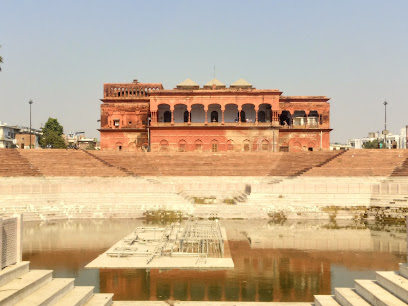
State Museum Lucknow
Uncover the rich history of Lucknow at the State Museum, showcasing exquisite artifacts and cultural heritage of Uttar Pradesh.
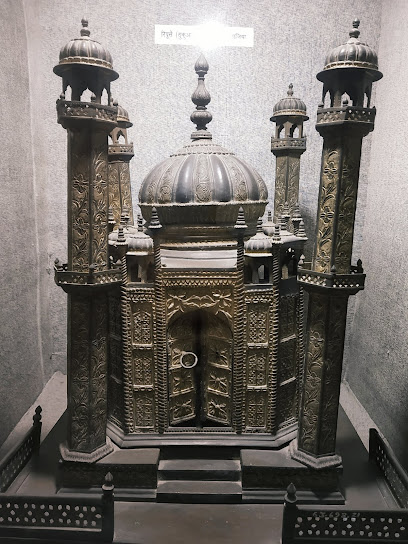
Dilkusha Garden
Discover the tranquil beauty and historical significance of Dilkusha Garden, a serene oasis in the heart of Lucknow, Uttar Pradesh.
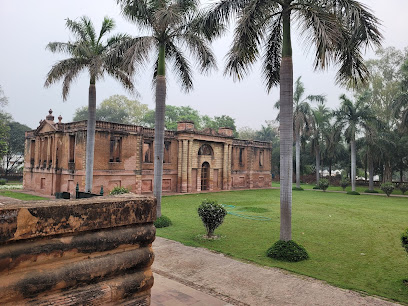
Haathi Park
Explore Haathi Park, a serene oasis in Lucknow, featuring lush landscapes and a captivating white elephant statue, perfect for family outings and relaxation.
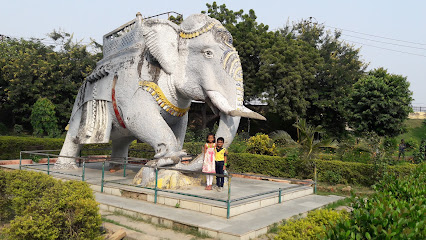
Picture Gallery
Discover the artistic heritage of Lucknow at the Picture Gallery, home to an exquisite collection of art and photography that captivates every visitor.
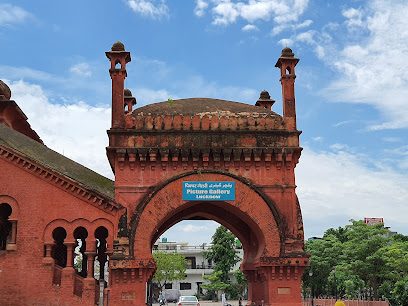
Ambedkar Park Museum
Explore the Ambedkar Park Museum in Lucknow, a majestic tribute to social reform and heritage amidst lush landscapes.
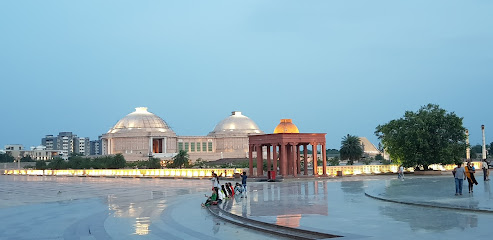
Satkhanda
Explore Satkhanda, a historical landmark in Lucknow, showcasing stunning Indo-Islamic architecture and rich cultural heritage for an unforgettable experience.
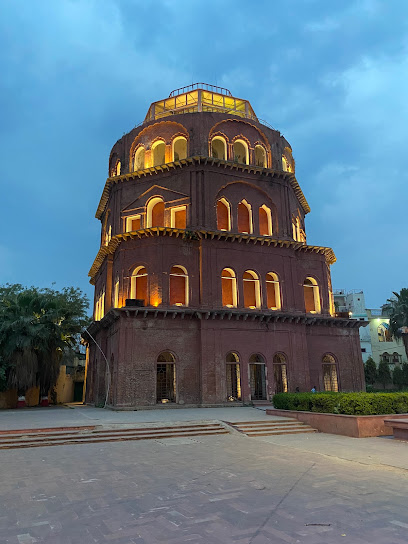
Essential places to dine
Milan~A Speciality Restaurant
Experience the rich flavors of Awadhi cuisine at Milan~A Specialty Restaurant in Lucknow – a must-visit for food lovers.
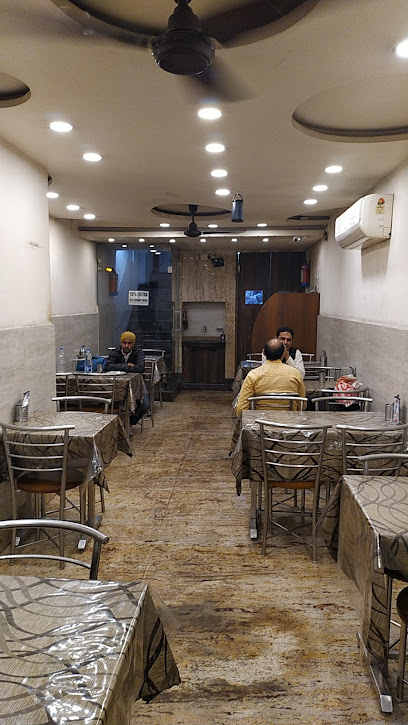
Moti Mahal Restaurant
Experience the vibrant flavors of North Indian and South Indian cuisines at Moti Mahal Restaurant in Lucknow - a true culinary delight.
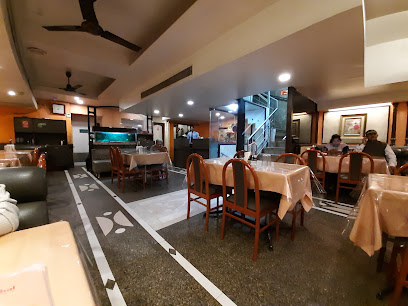
Royal Cafe
Experience the essence of Lucknow's culinary scene at Royal Cafe—home of the famous Basket Chaat and delightful fast food.
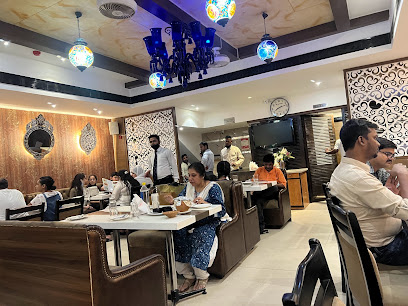
The Mughal's Dastarkhawan
Experience authentic North Indian and Mughlai cuisine at The Mughal's Dastarkhawan - a culinary jewel in Lucknow.
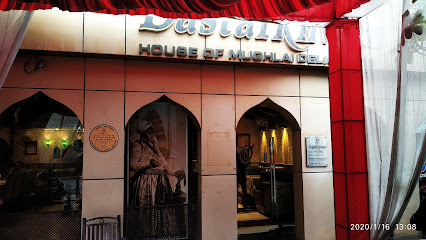
The Terrace
Discover the essence of Awadhi cuisine at The Terrace in Lucknow—where tradition meets taste in an elegant setting.
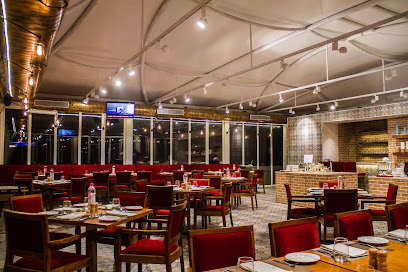
Barbeque Nation - River Side Mall, Lucknow
Indulge in an exquisite barbecue buffet at Barbeque Nation in River Side Mall, Lucknow—where every bite tells a story of flavor.
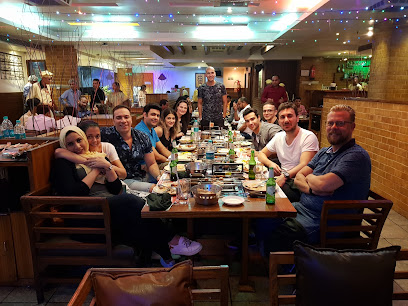
Royal Sky
Experience exquisite North Indian cuisine at Royal Sky in Hazratganj, Lucknow - where tradition meets elegance.
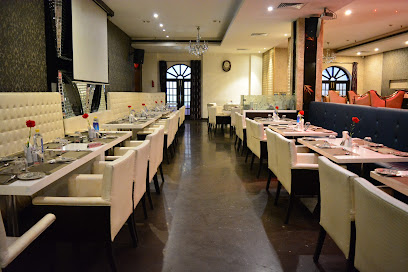
Mubeen's
Experience authentic Mughlai flavors at Mubeen's in Lucknow - a culinary delight for food enthusiasts!
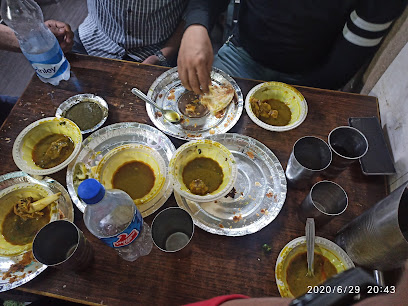
The Awadh's Dastarkhwan
Discover authentic Awadhi cuisine at The Awadh's Dastarkhwan in Lucknow - where tradition meets flavor in every bite.
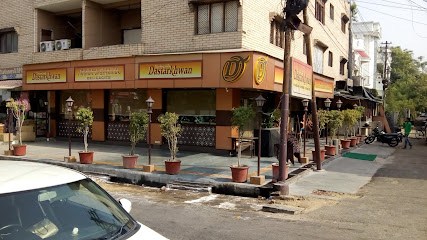
Curry Leaf Hazratganj
Experience authentic South Indian cuisine at Curry Leaf Hazratganj, where flavor meets family-friendly dining in the heart of Lucknow.
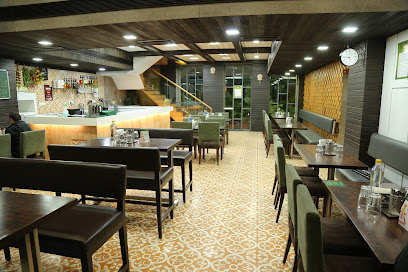
Spice Caves
Discover the exquisite flavors of Lucknow at Spice Caves - where fine dining meets exceptional service in Gomti Nagar.
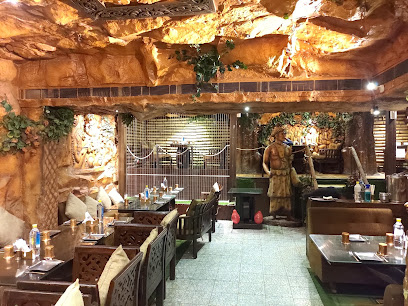
Farzi Cafe, Lucknow
Discover the unique fusion of traditional Indian flavors and modern culinary techniques at Farzi Cafe in Lucknow.
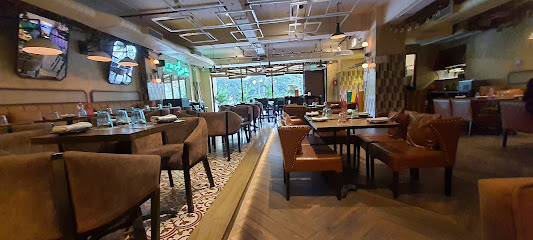
Vintage Machine
Experience the essence of Italy at Vintage Machine in Lucknow – where every meal is a celebration of authentic flavors and warm hospitality.
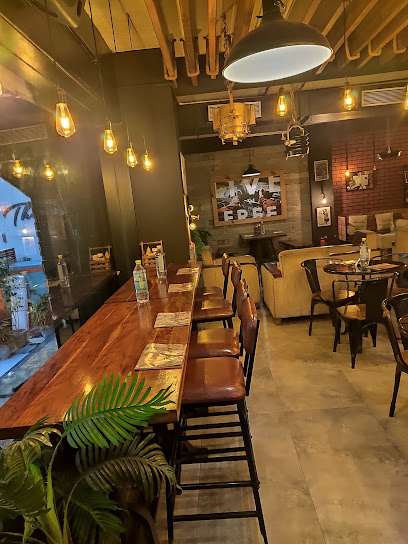
SAQI
Experience luxury dining at Saqi in Lucknow's Taj Mahal Hotel – where exquisite cocktails meet traditional Indian flavors.
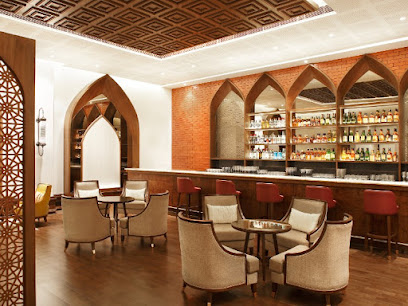
The Posh Pouf Family Restaurant - Best Family Restaurant in Alambagh | Best Multi Cuisine Restaurant In Alambagh Lucknow ||
Discover a family-friendly dining experience at The Posh Pouf in Lucknow with diverse cuisines from Indian to Mughlai and more.
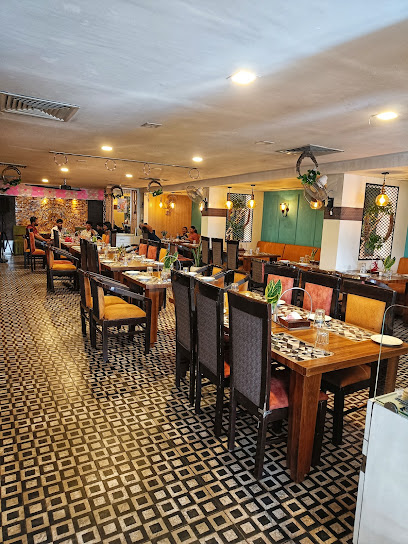
Markets, malls and hidden boutiques
V-Mart - Lucknow
Discover a diverse retail experience at V-Mart in Lucknow, offering clothing, convenience, and more in a vibrant shopping atmosphere.
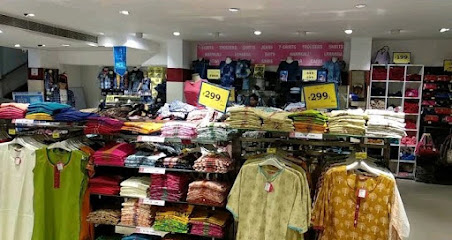
Lifestyle Stores
Discover the ultimate shopping experience at Lifestyle Stores in Lucknow, where fashion meets convenience in a vibrant mall setting.
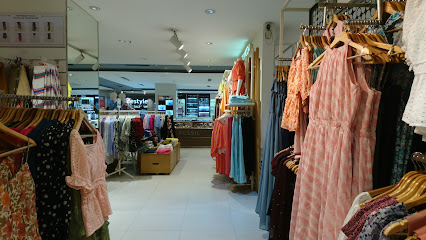
Fabindia Experience Center, Hazratganj
Explore the heart of Indian craftsmanship at the Fabindia Experience Center, Hazratganj - a unique shopping destination for clothing and textiles.
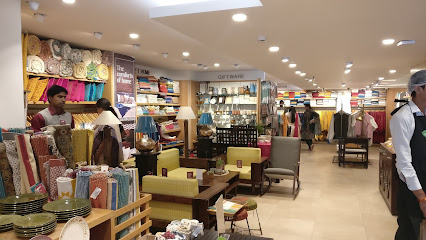
Paris Gift Corner
Explore a treasure trove of unique gifts and delightful toys at Paris Gift Corner in Lucknow, showcasing the essence of Indian craftsmanship.
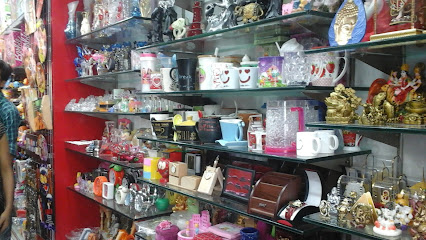
Kanchan Boutique-Best Boutique in Gole Market, Mahanagar-Near Me Boutique Gole Market-Designer Boutique in Gole Market
Explore unique styles and exquisite designs at Kanchan Boutique in Gole Market, Lucknow, where tradition meets contemporary fashion.
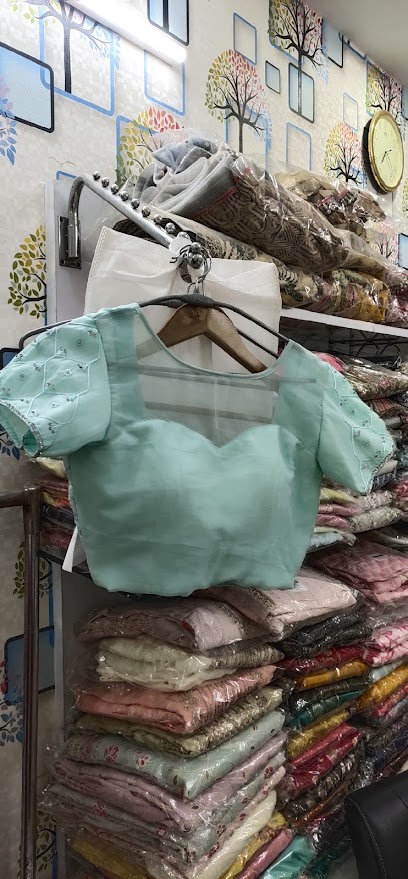
B. N. Rama & Co.
Explore Lucknow's vibrant outdoor sports store offering gear, gifts, and toys for all ages and adventures.
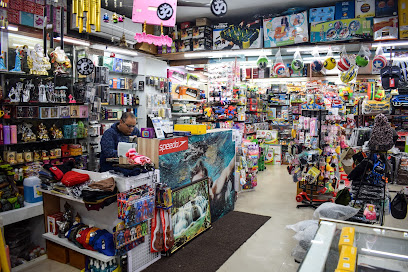
Unik Bazar Lucknow- Khurram nagar
Discover the vibrant shopping culture at Unik Bazar Lucknow, where local fashion meets a wide range of stylish clothing options.
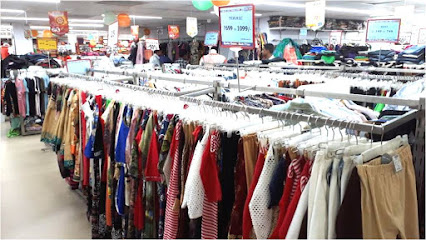
Shoppers Stop
Discover the ultimate shopping experience at Shoppers Stop in Lucknow, where fashion meets lifestyle in a vibrant department store setting.
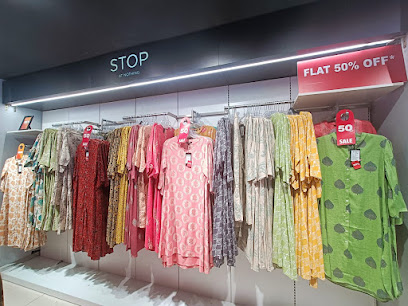
Shree Niwas Stores
Discover the vibrant shopping experience at Shree Niwas Stores in Lucknow, offering a wide range of baby clothing, cosmetics, and stylish accessories.
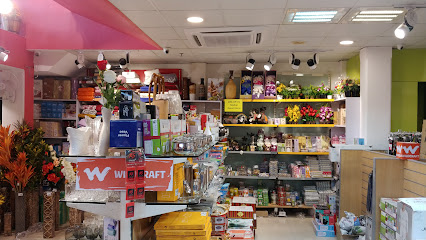
Snug N Hug Gift Shop
Explore Snug N Hug Gift Shop for unique gifts, charming toys, and personalized souvenirs in the heart of Lucknow.
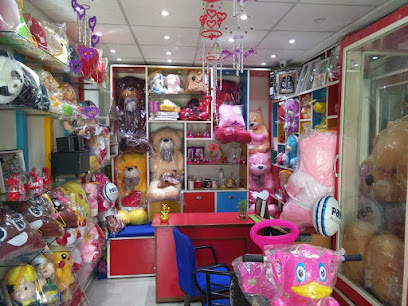
Surabhi Boutique
Explore Surabhi Boutique in Lucknow for a delightful selection of traditional and contemporary women's fashion, perfect for every occasion.
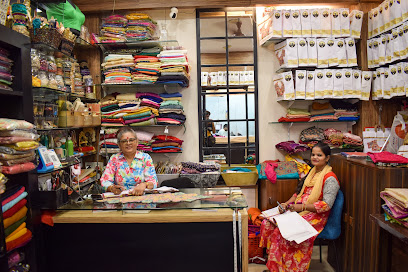
FunkyStore
Explore FunkyStore: A unique call shop in Lucknow's Rukmani Vihar Colony, blending local culture with modern shopping essentials.
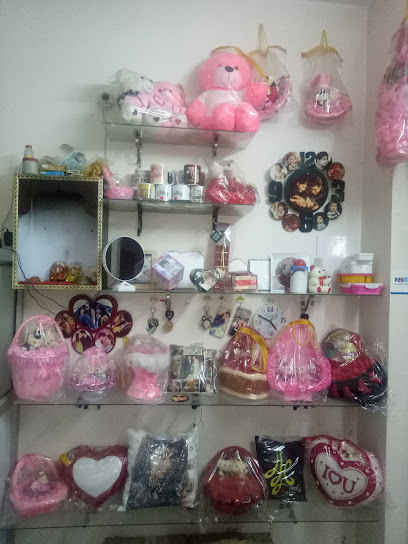
Teddy Bear Shop
Explore the whimsical Teddy Bear Shop in Lucknow, a delightful gift shop filled with plush toys that bring joy to all ages.
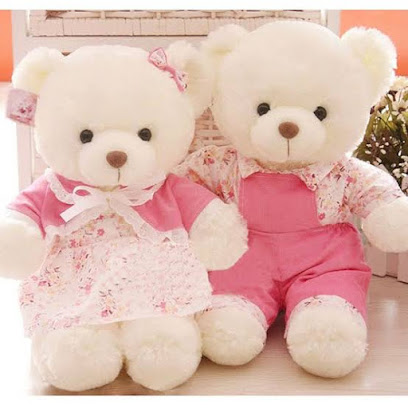
AND
Discover the latest in Western fashion at Saharaganj Mall, Lucknow - your destination for style and elegance.
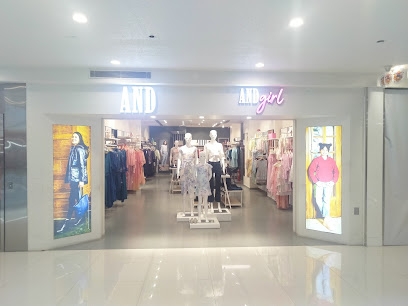
Alankriti Boutique
Discover the artistry of traditional Indian fashion at Alankriti Boutique, a must-visit destination in the heart of Lucknow.
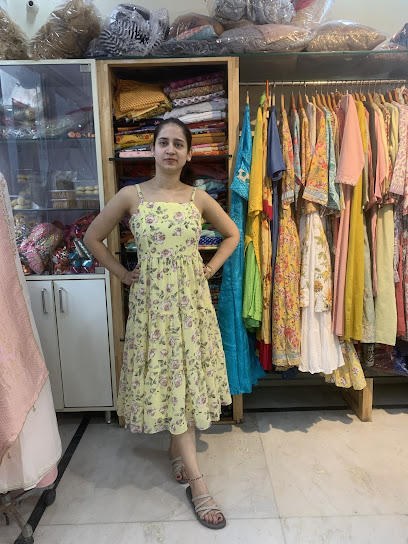
Essential bars & hidden hideouts
MOLECULE AIR BAR LUCKNOW
Experience Lucknow's vibrant nightlife at Molecule Air Bar, where exquisite cuisine meets stunning riverside views in an upscale setting.
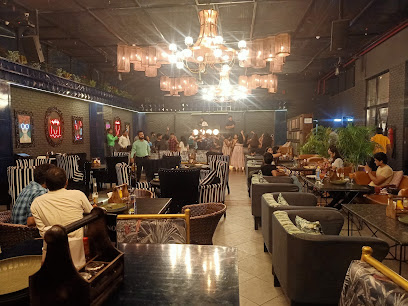
BIGG DADDY
Discover the vibrant nightlife of Lucknow at Big Daddy, where energetic ambiance, delicious cuisine, and stunning views unite for an unforgettable experience.
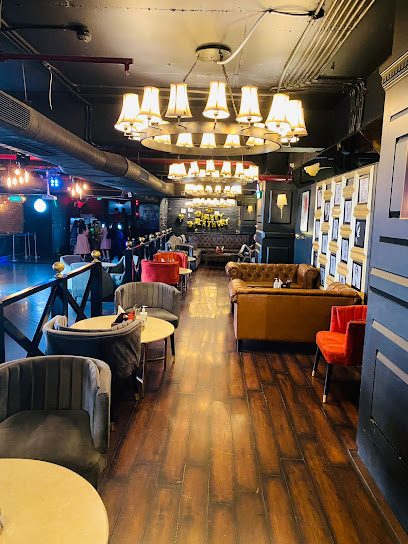
Münick Brew Haus by Pebbles
Experience the vibrant flavors of grilled cuisine at Münick Brew Haus, Lucknow's premier dining destination for food lovers.
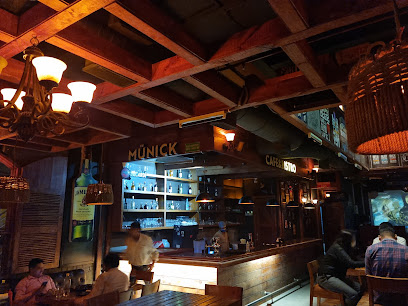
Boombox Lucknow
Discover the nightlife of Lucknow at Boombox, an upscale bar offering breathtaking views, gourmet drinks, and a lively atmosphere.
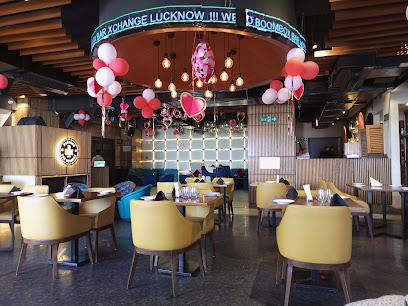
Ttamaasha Bistro Bar
Experience the vibrant fusion of flavors and nightlife at Ttamaasha Bistro Bar in Lucknow, where every meal is a celebration.
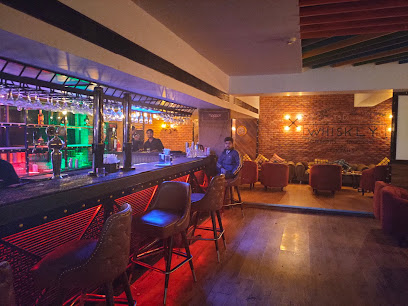
Percussion
Experience the vibrant nightlife of Lucknow at Percussion, a premier pub and lounge offering exquisite dining and a lively atmosphere.
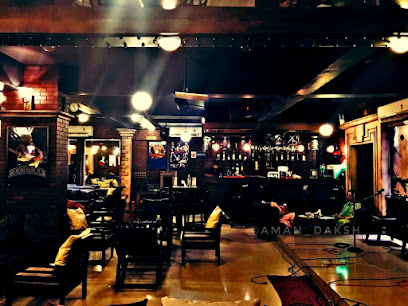
Sky Bar
Experience luxury and breathtaking views at Sky Bar in Lucknow, the perfect spot for cocktails and gourmet dining.
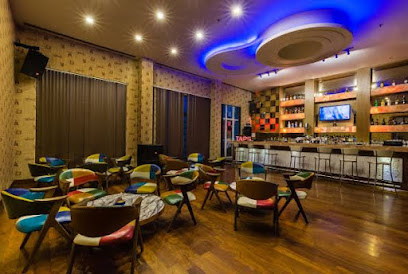
My Bar Headquarters Lucknow
Experience the vibrant nightlife at My Bar Headquarters in Lucknow, where exquisite cocktails meet stunning city views in a chic atmosphere.
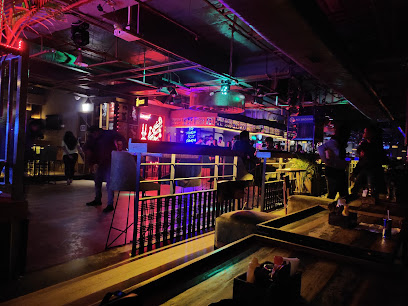
Vintage Machine Cocktail Bar
Experience a delightful fusion of American, Asian, and Italian cuisine at Vintage Machine Cocktail Bar, where every sip and bite is a celebration of flavor.
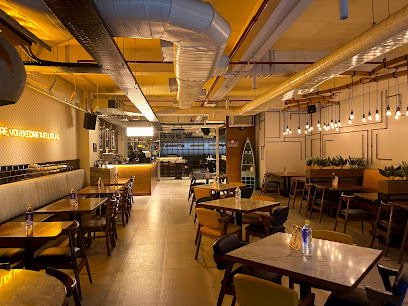
Lord of the Drinks, Gomti Nagar
Discover the vibrant nightlife of Lucknow at Lord of the Drinks, Gomti Nagar – where exquisite cocktails and delectable cuisine meet chic ambiance.
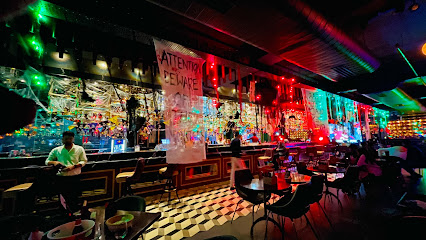
Underdoggs Sports Bar & Grill
Experience the ultimate sports dining experience at Underdoggs Sports Bar & Grill in Lucknow, where delicious food meets thrilling live sports.
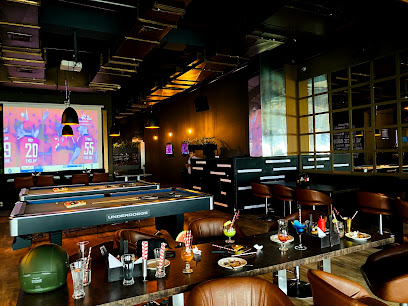
BohoBar
Discover the vibrant nightlife of Lucknow at BohoBar, where eclectic dining meets lively entertainment in a stylish setting.
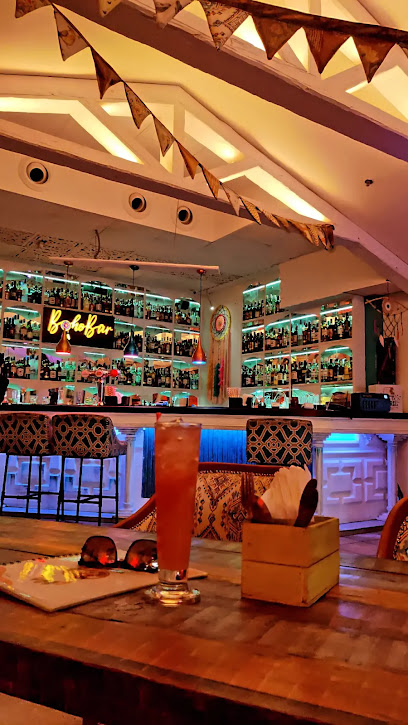
Blue Fox Bar
Discover the vibrant Blue Fox Bar in Lucknow, where delightful cuisine meets an exciting nightlife in a stylish setting.
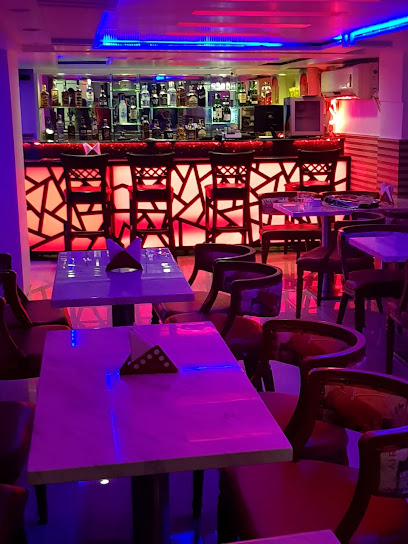
Bigg Boss
Experience the thrill of flavorful grilled delicacies and vibrant nightlife at Bigg Boss, the ultimate lounge and disco club in Lucknow.
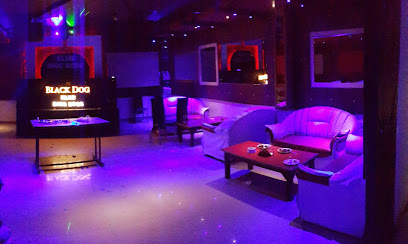
QUE
Discover the electrifying nightlife at QUE, Lucknow's premier bar and disco club, where exquisite drinks and vibrant atmosphere await.
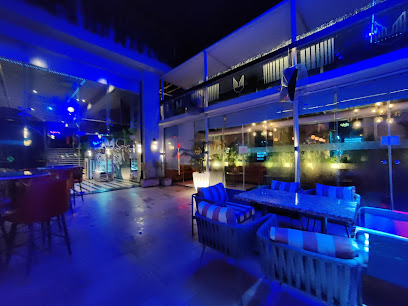
Local Phrases
-
- Helloनमस्कार
[namaskār] - Goodbyeख़ुदा हाफ़िज़
[xudā hāfiz] - Yesहाँ
[hā̃] - Noनहीं
[nahī̃] - Please/You're welcomeकृपया
[kṛipayā] - Thank youधन्यवाद
[dhanyavād] - Excuse me/Sorryमाफ़ कीजिए
[māf kījie] - How are you?आप कैसे हैं?
[āp kaise haiṅ?] - Fine. And you?ठीक हूँ। और आप?
[ṭhīk hū̃। aur āp?] - Do you speak English?क्या आप अंग्रेज़ी बोल सकते हैं?
[kyā āp aṅgrezī bol sakte haiṅ?] - I don't understandमुझे समझ में नहीं आया
[mujhe samajh meṅ nahī̃ āyā]
- Helloनमस्कार
-
- I'd like to see the menu, pleaseकृपया मेनू देखना चाहूँ
[kṛipayā menū dekhnā cāhū̃] - I don't eat meatमैं मांस नहीं खाता
[maiṅ māns nahī̃ khātā] - Cheers!चियर्स!
[ciyars!] - I would like to pay, pleaseकृपया मैं भुगतान करना चाहूँ
[kṛipayā maiṅ bhugatān karnā cāhū̃]
- I'd like to see the menu, pleaseकृपया मेनू देखना चाहूँ
-
- Help!मदद!
[madad!] - Go away!चले जाओ!
[cale jāo!] - Call the Police!पुलिस को बुलाओ!
[polis ko bulāo!] - Call a doctor!डॉक्टर को बुलाओ!
[ḍokṭar ko bulāo!] - I'm lostमैं खो गया/गई हूँ
[maiṅ kho gayā/gaī hū̃] - I'm illमुझे बीमारी है
[mujhe bīmārī hai]
- Help!मदद!
-
- I'd like to buy...मैं ... खरीदना चाहूँगा/चाहूँगी
[maiṅ ... kharīdnā cāhū̃gā/cāhū̃gī] - I'm just lookingमैं सिर्फ़ देख रहा/रही हूँ
[maiṅ sirf dekh rahā/rahī hū̃] - How much is it?यह कितना है?
[yah kitnā hai?] - That's too expensiveयह बहुत महंगा है
[yah bahut mahangā hai] - Can you lower the price?क्या आप कीमत कम कर सकते हैं?
[kyā āp kīmat kam kar sakte haiṅ?]
- I'd like to buy...मैं ... खरीदना चाहूँगा/चाहूँगी
-
- What time is it?अब कितने बजे हैं?
[ab kitne baje haiṅ?] - It's one o'clockएक बजे हैं
[ek baje haiṅ] - Half past (10)दस बजे बारह बजे हैं
[das baje bārah baje haiṅ] - Morningसुबह
[subah] - Afternoonदोपहर
[dopahar] - Eveningशाम
[shām] - Yesterdayकल
[kal] - Todayआज
[āj] - Tomorrowकल
[kal] - 1एक
[ek] - 2दो
[do] - 3तीन
[tīn] - 4चार
[cār] - 5पाँच
[pā̃c] - 6छह
[chheh] - 7सात
[sāt] - 8आठ
[āṭh] - 9नौ
[nau] - 10दस
[das]
- What time is it?अब कितने बजे हैं?
-
- Where's a/the...?...कहाँ है?
[...kahā̃ hai?] - What's the address?पता क्या है?
[patā kyā hai?] - Can you show me (on the map)?क्या आप मुझे दिखा सकते हैं (नक्शे पर)?
[kyā āp mujhe dikhā sakte haiṅ (nakśe par)?] - When's the next (bus)?अगली (बस) कब है?
[aglī (bas) kab hai?] - A ticket (to ....)एक टिकट (.... के लिए)
[ek ṭikat (.... ke lie)]
- Where's a/the...?...कहाँ है?
History of Lucknow
-
Lucknow, the capital city of the state of Uttar Pradesh, was originally named Lakshmanpur in honor of Lakshmana, a hero from the Indian epic Ramayana. The city was founded by Nawab Asaf-ud-Daula in the 18th century, who moved the capital of Awadh from Faizabad to Lucknow in 1775. The city quickly grew in prominence under his rule, becoming a hub of cultural and architectural innovation.
-
The Nawabs of Awadh were instrumental in shaping the cultural and architectural landscape of Lucknow. Under the Nawabs, especially during the reign of Nawab Wajid Ali Shah, Lucknow became a center of Urdu poetry, dance, and music. The Nawabs commissioned several architectural marvels, including the Bara Imambara, Chota Imambara, and Rumi Darwaza. These structures not only served as administrative and religious centers but also became symbols of the city's rich cultural heritage.
-
One of the most significant events in Lucknow's history is its pivotal role in the Indian Rebellion of 1857. The Siege of Lucknow was a major episode during the uprising against British rule. The Residency, a large complex built for British officials, became the focal point of the siege. After months of fierce fighting, British forces eventually relieved the besieged Residency. Today, the Residency is preserved as a historical monument, with its bullet-scarred walls standing as a testament to the city's turbulent past.
-
Following the suppression of the 1857 rebellion, Lucknow came under direct British control. The city saw significant changes, including the construction of new buildings in European styles and the establishment of educational institutions. La Martinière College, founded by the Frenchman Major General Claude Martin, is one of the most notable examples of colonial architecture in Lucknow. The British period also brought about infrastructural development, such as railways and road networks, which facilitated the city's growth.
-
After India gained independence in 1947, Lucknow continued to evolve as a major metropolitan center. The city has managed to retain its historical charm while embracing modernization. It has become a political, cultural, and educational hub, home to institutions like the University of Lucknow and the Indian Institute of Management, Lucknow. The post-independence era has seen a resurgence of interest in the city's heritage, with efforts to preserve its historical monuments and promote its rich cultural legacy.
-
Lucknow is renowned for its delectable cuisine, particularly its Awadhi dishes. The city is famous for its kebabs, biryanis, and sweets like 'kulfi' and 'sheer korma.' The culinary traditions of Lucknow are a reflection of its diverse cultural influences, including Mughal, Persian, and Central Asian. The city also hosts vibrant festivals, such as Diwali, Eid, and Holi, which are celebrated with great enthusiasm. The traditional dance form, Kathak, and the classical music genre, Thumri, have deep roots in Lucknow's cultural heritage.
Lucknow Essentials
-
Lucknow is well-connected by air, rail, and road. The nearest airport is Chaudhary Charan Singh International Airport, located about 12 kilometers from the city center. It has regular flights from major Indian cities such as Delhi, Mumbai, and Bangalore. Lucknow Junction and Charbagh Railway Station are the two main railway stations, with regular trains from cities across India. The city is also accessible by road via national highways, with numerous bus services connecting it to nearby cities and states.
-
Getting around Lucknow is convenient with various transportation options. Auto-rickshaws and cycle-rickshaws are commonly used for short distances. For longer distances, taxis and app-based ride services like Uber and Ola are available. The city also has a well-connected public bus network operated by the Uttar Pradesh State Road Transport Corporation (UPSRTC). Additionally, the Lucknow Metro provides a fast and efficient way to travel within the city.
-
The official currency in Lucknow is the Indian Rupee (INR). Credit and debit cards are widely accepted in hotels, restaurants, and shops. However, it is advisable to carry some cash, especially when visiting local markets and smaller establishments. ATMs are readily available throughout the city, and currency exchange services can be found at the airport and in major hotels.
-
Lucknow is generally considered safe for tourists, but it is advisable to take standard precautions. Avoid walking alone at night in unfamiliar areas and be aware of your surroundings. Areas such as Aminabad and Charbagh can be crowded, so keep an eye on your belongings to avoid pickpocketing. It's also wise to use registered taxis or app-based ride services instead of hailing cabs from the street.
-
In case of emergency, dial 112 for immediate assistance. Lucknow has several hospitals and medical facilities, including King George's Medical University and Sanjay Gandhi Postgraduate Institute of Medical Sciences. Pharmacies are widely available for minor health issues. It is recommended to have travel insurance that covers medical emergencies. For police assistance, contact the local police station.
-
Fashion: Do dress modestly, especially when visiting religious sites. Avoid wearing revealing clothing. Religion: Do respect local customs and traditions. Remove your shoes before entering temples and cover your head if required. Public Transport: Do be respectful and give up your seat to elderly passengers. Don't eat or drink on public transport. Greetings: Do greet people with a 'Namaste' (pressing your palms together) or a handshake. Eating & Drinking: Do try local delicacies and accept food offerings graciously. Don't refuse hospitality, as it is considered impolite.
-
To experience Lucknow like a local, visit the bustling markets of Hazratganj and Aminabad for traditional Chikan embroidery and local handicrafts. Savor the city's famous street food, such as kebabs and biryanis, at Tunday Kababi and Idris Biryani. Engage with locals, who are often friendly and willing to share stories about the city's rich history and culture. Don't miss visiting the Bara Imambara and Rumi Darwaza, iconic landmarks that showcase Lucknow's architectural heritage.
Trending Landmark in Lucknow
Nearby Cities to Lucknow
-
Things To Do in Kanpur
-
Things To Do in Lumbini
-
Things To Do in Varanasi
-
Things To Do in Gwalior
-
Things To Do in Agra
-
Things To Do in Pokhara
-
Things To Do in Chitwan
-
Things To Do in Bandipur
-
Things To Do in Gorkha
-
Things To Do in Jabalpur
-
Things To Do in Delhi
-
Things To Do in Patna
-
Things To Do in Patan
-
Things To Do in Kathmandu
-
Things To Do in Rishikesh

















